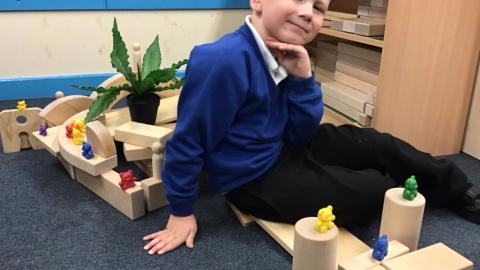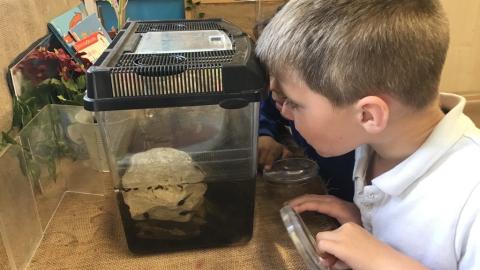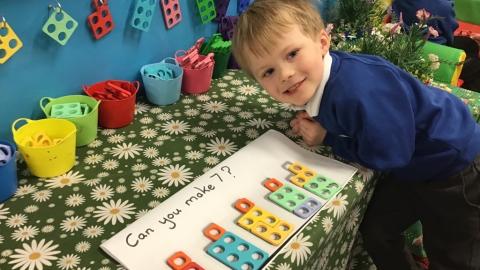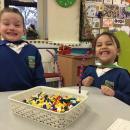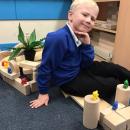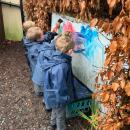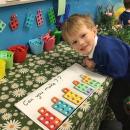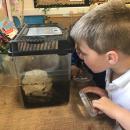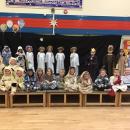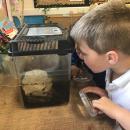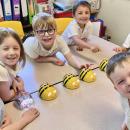Our Vision
Children who learn and play in the Early Years at Settle C.E Primary School will always be greeted with a big smile. We believe that positive relationships are the key to children being happy and motivated in school. The children will be invited into an enriching environment which enables them to make independent choices, rehearse skills, build resilience, and ignite curiosity. Adults spend time becoming engrossed in shared thinking and discussion, they know how to move learning on in a purposeful way, providing children with the next big question to explore. We ensure that every child’s voice is heard and that individual needs are met through our plan-doreview cycles. All areas of the curriculum are valued, and significant importance is placed on developing the Prime areas in both Nursery and Reception. It is important to us that children are given real life experiences which they are able to draw upon using their skills and knowledge to build links between different areas of learning. It is vital that our youngest children see themselves as endlessly capable individuals who look forward to becoming lifelong learners. The Early Years team work closely together to ensure continuity and seamless transitions. Mrs Helen Wright is the Phase Leader and oversees the teaching, learning and expectations of learning behaviours.
All areas of the EYFS curriculum are valued for their significant importance and great care is placed in developing the Prime areas. It is important to us that children are given real life experiences in which they are able to draw upon using their skills and knowledge to build links between different areas of learning. You will find our children outside come rain or shine, experiencing the weather and the changing seasons. The EYFS is based on four overarching principles:
• Every child is a unique child, who is constantly learning and can be resilient, capable, and confident.
• Children learn to be strong and independent through positive relationships.
• Children learn and develop well in enabling environments, in which their experiences respond to their individual needs and there is a strong partnership between practitioners and parents and/or carers.
• Children develop and learn in different ways and at different rates.
Aims
• Foundation Stage teachers and teaching assistants should ensure that all children feel part of the school community, secure and valued. Initially this will be exclusively the Early Years setting and as the year develops will move into the wider school.
• To provide a relevant curriculum with tasks that take into account the children’s interests and fascinations and are both practical and purposeful. The children will be taught through stimulating topics, these are developed with the children in mind and develop specific interests they have expressed. The teachers will also plan many activities and tasks which are centred around skills the children need to develop, these are targeted through observation and work alongside the child.
• To provide quality opportunities for children to engage in activities planned by adults and those that children plan or self-initiate. Teachers must plan a challenging and enjoyable experience in all areas of learning and development.
• Practitioners acknowledge the holistic nature of young children’s learning and natural links will be made between different areas of the curriculum, with the emphasis on learning through play and the importance of developing the prime areas of the Foundation Stage Curriculum.
• Practitioners always endeavour to create a learning environment that develops children’s independence and encourages children to explore and express their ideas and feelings. There are seven areas of learning and development that must provide a framework for planning, teaching and assessing in early years settings. All areas of learning and development are interconnected.

